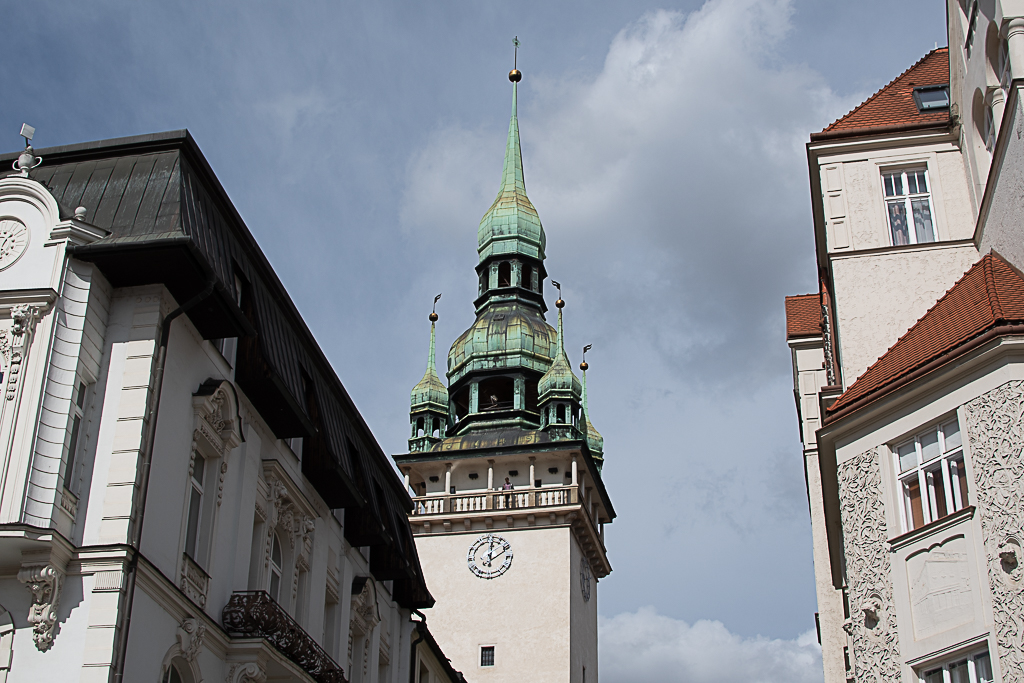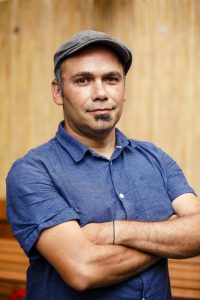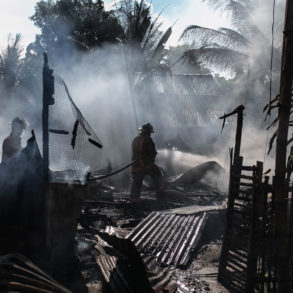Municipal elections are fast approaching across the Czech Republic, scheduled for October 5-6. The most recognisable symbols of a Czech election season are the identikit billboards that suddenly appear everywhere all at once, with airbrushed politicians grinning eerily at you out of white backgrounds, alongside vague and interchangeable party slogans. But it’s fair to say that apart from that, elections don’t tend to generate a lot of excitement in this country. Photo credit: @BrnoDaily.
Brno, Oct 1 (BD) – For foreign residents, elections can be an alienating experience, as you find yourself shut out of civic life, with decisions made around you by your neighbours without your input. In many countries around the world in the last few years, immigrants have witnessed electoral actions that hold monumental significance for their livelihoods and futures, but in which they played no part themselves. However, for municipal elections like those taking place in October, the situation is slightly different for some foreigners living in the Czech Republic; provided you are an EU citizen and in possession of a temporary or permanent residence card, you have the right to vote.
But your democratic rights don’t stop there – EU rules state that anyone from an EU member state has the right to stand as a party list candidate in any municipal and European Parliament elections (though not for mayor, a position reserved for Czech nationals). Though a lot of us, in common with our Czech neighbours, love moaning about the state of the world, the idea of actually getting involved in another country’s politics is daunting for many, compounded in this case by a local language that many expatriates struggle to master. However, this year’s candidates in Brno will include some foreigners who have taken up the challenge to get involved.
“All the candidates that spoke to Brno Daily are brimming with ideas and enthusiasm, but strikingly, all were very positive about the current situation for foreigners in the town.”
Žít Brno (Live Brno), a civic movement that started life as an online satirical group before standing in the last local elections in 2014, has five non-native candidates on its lists. António Pedro Nobre, 42, a film-maker originally from Lisbon in Portugal, is one of them. He came to the attention of the party through a series of documentaries he made about life as an expatriate in Brno, and then, like the party’s other foreign candidates, was invited to join the party’s list, as part of a deliberate attempt by the party to appeal to foreign voters. Nobre has been in Brno on-and-off for 14 years, between stints in other areas of the country, and is now settled here; when asked what he likes about the city, his answer echoes that of many foreign residents, marvelling at “how it can be buzzing and quiet, or trendy and traditional at the same time,” and he also praises the town’s spirit and “unique atmosphere,” as well as the can-do attitude of Brno’s natives.
In the picture: António Pedro Nobre.
Anne Johnson, 50, a freelance editor and native of California, is also standing on Žít Brno’s list. A resident in the city since 1994, Johnson is a naturalized Czech citizen and fully integrated into city life, but like Nobre is participating in politics for the first time. Johnson praises Brno as “a city with pieces of history around every corner, that is honest about its past, while at the same time has a pretty clear focus on its future.”
In the picture: Anne Johnson.
The Czech Pirate Party is also standing a foreign candidate, Sergio Bellini, 53, from Emilia-Romagna in Italy. Another veteran of the city’s ex-pat community, Bellini has been in Brno since 1993, and runs the Castellana Trattoria restaurant near Malinovského náměstí. Bellini describes Brno as “a big city, but very easy to live”, and a place which is family-friendly and safe with decent amenities. The idea of “a big city, but..” is a common refrain among Brno’s foreign residents when discussing the city. As Johnson puts it, “Brno also sometimes feels like a village in terms of how connected everyone is. It’s a perfect balance.”
In the picture: Sergio Bellini.
All the candidates that spoke to Brno Daily are brimming with ideas and enthusiasm, but strikingly, all were very positive about the current situation for foreigners in the town, and none mentioned any great wrongs or injustices they wished to address. Instead, they each listed various recent positive changes in recent years, from more signs in English and other accessibility measures, to free language classes and initiatives to regularize ex-pats living in the margins of society. Each candidate we interviewed singled out the Brno Expat Centre above all as a valuable source of support for the town’s non-native residents.
“I want foreigners to feel like they can engage with Czech culture, that it’s not off limits to them.”
– Anne Johnson
So if everything is going in the right direction, why are they standing? For Bellini, it’s about a sense of civic duty that you hear from local politicians everywhere: “I took the opportunity to make myself useful and do something active for the city where I live and where my children were born and are growing up,” adding that he hopes to “make the right decisions to maintain and improve the quality of life of citizens”. For Anne Johnson, on the other hand, she sees an opportunity to bridge a perceived gap between the two communities living side-by-side: “I want foreigners to feel like they can engage with Czech culture, that it’s not off limits to them.” She also highlights the need to address a political apathy that is not limited to the non-native community: “I think very few foreigners, and actually not that many Czechs, follow local or national politics. This is something I’d definitely like to see change; I would like to have apathy be a personal choice rather than down to a lack of information, which I believe it currently is.”
“In a local assembly, the members should represent its inhabitants, so when Brno has about 30,000 foreigners living here, there should be at least one foreigner to represent them.”
– António Pedro Nobre
Nobre’s motivations, while similar in some respects, focus more on the issue of representation for a constituency that is increasingly important for the city but as yet without a clear voice. “In a local assembly, the members should represent its inhabitants, so when Brno has about 30,000 foreigners living here, there should be at least one foreigner to represent them,” he explained, adding that “by being a member of the local assembly I can keep giving a direct voice for other people like me, who live here and are going through what I experienced first hand while living here as a foreigner too.”
“I would definitely try to improve the behaviour of the Foreign Police!”
– Gabriela Zalubil Reichlová
Of course, the foreign and native populations living in Brno are not necessarily always so disconnected. Gabriela Zalubil Reichlová is also standing in the elections, representing KDU–ČSL (the Christian Democrats). Though herself a native Czech, she is married to an American husband, with two bilingual, dual-national children, giving her an interesting perspective on the integration of Brno’s foreign community, a perspective shared by the growing number of Czechs living in multinational families. On the conditions for foreigners in Brno, she agrees with the other candidates that things have been changing for the better in recent years, but highlights the level of English of those working in public offices as one area for improvement, and adds that “I would definitely try to improve the behaviour of the Foreign Police!” As for the prospect of foreign candidates participating in the elections, Reichlová is wholly positive: “Why not? It’s good to have fresh or different views, and foreigners definitely have a different point of view on some issues.”
“Despite an election campaign characterized nationally by sometimes vicious anti-immigrant rhetoric, the candidates reported that negative responses while out campaigning have been limited to isolated incidents.”
Talking to the candidates, it’s clear that this “outsider view” does offer a fresh perspective on some issues. Nobre mentions the difficulties of registering in Czech public offices as a Portuguese citizen with four surnames, and the inadequate size of the Foreign Registry, while for Anne Johnson being non-native gives an insight into the situation for other parts of the expatriate community that arrived before her: “I think the Vietnamese community is woefully overlooked. I think Žít Brno has made real efforts here, but there are so many Vietnamese people living here in the margins and treated with complete lack of understanding by the general populace.”
“It is a delicate thing to allow people who are not born here and do not have the full sense of the mentality and traditions of being able to collaborate in the administration of the city. I think we need a lot of sense, and to try not to upset the soul, character and personality of the city itself.”
– Sergio Bellini
All the candidates reported extremely welcoming and positive treatment from the parties they are representing, and Reichlová said that any foreigners sharing her party’s values would also be more than welcome, but what about from the wider electorate? Despite an election campaign characterized nationally by sometimes vicious anti-immigrant rhetoric, the candidates reported that negative responses while out campaigning have been limited to isolated incidents. But is there something problematic about muscling into another country’s political system? Do the candidates feel any trepidation? It’s an issue that Bellini is well aware of: “It is a delicate thing to allow people who are not born here and do not have the full sense of the mentality and traditions of being able to collaborate in the administration of the city. I think we need a lot of sense, and to try not to upset the soul, character and personality of the city itself.” Žít Brno’s tactic of appealing publicly to foreign voters seems high-risk in a country preoccupied with tensions over immigration, but as Reichlová says, “from my experience most people have either a love or hate approach to this party, so I think that pretty much anything they do will be used against them by people who don’t like them.” For Žít Brno’s Nobre, however, it comes down to a matter of principle: “We try to highlight the important role that we foreigners who move here can have in this city, since some Czech people are complaining about us voting and participate in the elections, and we try to make them understand that we too deserve these rights.”
“Brno is also growing because of us [foreigners] and people have to understand what real integration is.”
– Emanuele Ruggiero
Either way, the candidates all agree that the outcome is unlikely to be substantially affected by all the new foreign voters. What’s important is the chance for engagement. As Nobre says, “for me the most important is that they care to vote and be part of this election too. I will be happy to see that a large number of them did, even if I don’t win.” For him there would also be other potential benefits to a high expat turnout: “It is a good psychological slap in the face for those populists who rant about migration, and perhaps they may re-think their rhetoric for the European Parliament elections that will come next – after all, we can vote in those too.” And engagement can be a two-way street, as Anne Johnson notes, “it may have an indirect effect, in that people talking about it may motivate Czechs (whether anti-foreign or otherwise) to vote.”
Some of the foreign candidates standing in the elections are towards the bottom of their party’s lists and so not expecting to get elected, though with preferential voting the results can be unpredictable and anything is possible. But the foreign candidate with perhaps the most realistic hope of getting elected is Emanuele Ruggiero. Ruggiero, a film-director from Milan in Italy, is ranked #6 on Žít Brno’s list for their stronghold of Brno-Střed, and therefore stands a good chance of becoming the first foreign representative elected to the city council. A self-described “conscious European citizen”, Ruggiero says that if elected he will “have a voice as a foreigner living here to let Czechs understand that multiculturalism is the only way to grow, to learn, to change ideas. Brno is also growing because of us and people have to understand what real integration is.”
In the picture (in the front): Emanuele Ruggiero.
Whether or not the expatriate vote affects the final results of the election, and whether or not the candidates profiled here are finally elected, it would be hard to deny that they are a clear symbol of the changing character of the city and the country as it continues to open to the world.
Get the news first! Subscribe to our daily newsletter here. Top stories of the day in your mailbox every morning.












